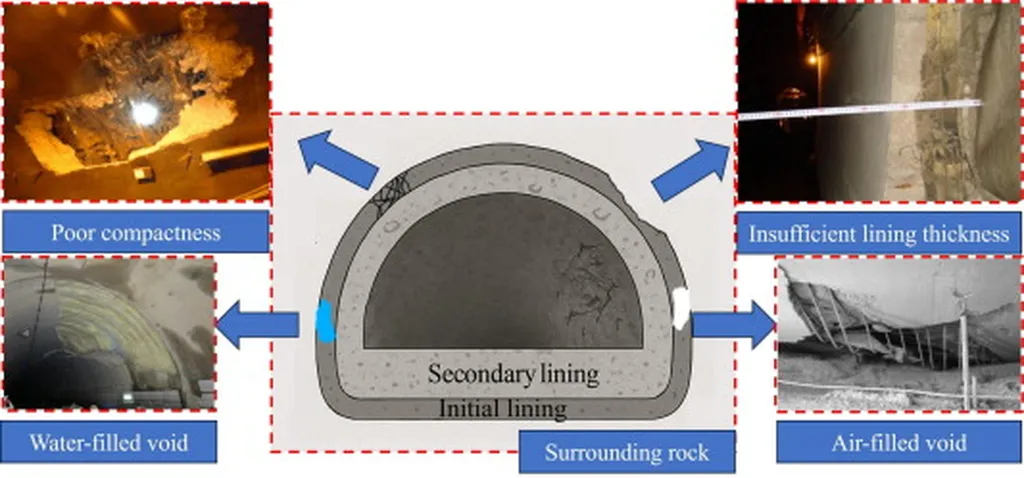In the realm of tunnel engineering, a groundbreaking development has emerged that promises to revolutionize the way we inspect and maintain underground structures. Researchers, led by Jiahao Li from the Department of Geotechnical Engineering at Tongji University in Shanghai, have introduced a novel deep learning model called T-GPRMask. This innovative tool is designed to automate the detection of defects and components in tunnel linings using ground-penetrating radar (GPR) images, a task that has traditionally been time-consuming and reliant on expert interpretation.
The significance of this advancement cannot be overstated, particularly for the energy sector, where tunnels play a crucial role in infrastructure development. “The ability to quickly and accurately identify defects such as poor compactness, voids, and steel arch supports is vital for ensuring the safety and longevity of these structures,” Li explains. “Our model, T-GPRMask, integrates a convolutional block attention module (CBAM) and feature pyramid network (FPN) to enhance multi-scale feature extraction, making it possible to detect even the smallest, low-contrast defects that are often missed by traditional methods.”
The model’s performance is impressive, achieving recognition accuracies ranging from 83.18% to 92.84% for various types of defects and components. In a comparative study, T-GPRMask outperformed traditional models like YOLOv7 and RetinaNet, demonstrating its superior capability in handling the complexities of GPR images. Field experiments on real-world tunnel inspection data further validated the model’s high spatial accuracy, underscoring its practical applicability in tunnel maintenance.
The implications of this research are far-reaching. By automating the inspection process, T-GPRMask can significantly reduce the time and labor costs associated with tunnel maintenance, making it a valuable tool for energy companies and infrastructure developers. “This technology has the potential to transform the way we approach tunnel inspections,” Li notes. “It not only enhances efficiency but also improves safety by enabling early detection of potential issues.”
Published in the journal ‘Underground Space’ (translated from Chinese as ‘地下空间’), this research marks a significant step forward in the field of tunnel engineering. As the energy sector continues to expand and evolve, the need for reliable and efficient inspection methods will only grow. T-GPRMask represents a promising solution to this challenge, paving the way for safer, more cost-effective tunnel maintenance practices.
The future of tunnel inspections looks brighter with the advent of T-GPRMask. As the technology continues to evolve, it is likely to become an indispensable tool in the arsenal of engineers and inspectors, ensuring the integrity and safety of underground structures for years to come. This research not only highlights the potential of deep learning in the field of civil engineering but also underscores the importance of ongoing innovation in addressing the challenges of modern infrastructure development.

